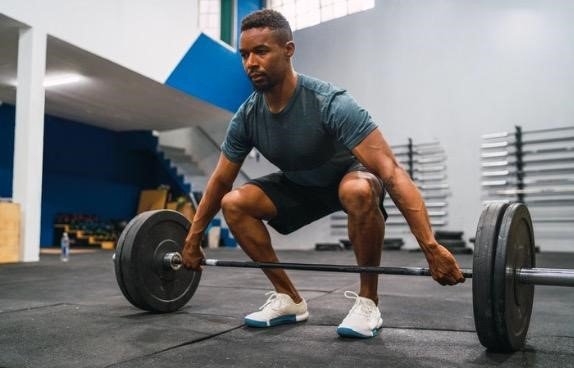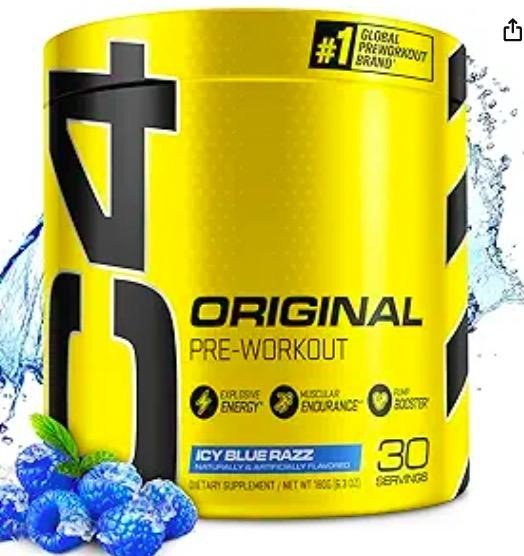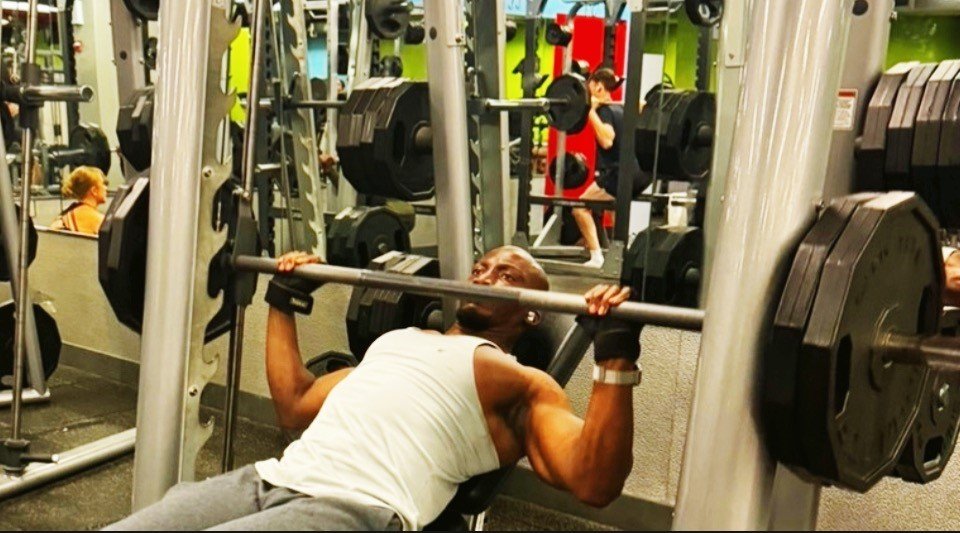Have you ever experienced that 3 p.m. energy slump just before your workout? Or you’re facing a challenging leg day, and squatting that barbell seems as appealing as a dental visit. We’ve all been there.
Pre-workout supplements offer a potential solution, promising a surge of energy, enhanced focus, and increased strength. But are these products the real deal, or just cleverly marketed caffeine bombs?
More importantly, do you really need them? That’s the million-dollar question; the answer is more complex than you might think. In this no-BS guide, we’re cutting through the marketing hype and getting honest about pre-workout supplements.
We’ll delve into what they are, what they claim to do, and whether they’re worth your hard-earned cash. By the end, you’ll have the knowledge to decide whether these supplements align with your fitness goals and lifestyle.
The Pre-Workout Primer: What’s in the Mix?

Pre-workout supplements are a cocktail of ingredients designed to enhance your exercise performance.
They’re typically consumed 20-30 minutes before you hit the gym, and the goal is to give you a surge of energy, increase your stamina, and sharpen your focus. But what’s actually in these potent potions?
But what’s actually in that scoop? Here’s a breakdown of some common pre-workout ingredients:
- Caffeine: The undisputed king of pre-workout ingredients. It’s a stimulant that works by blocking adenosine, a neurotransmitter that makes you feel tired. This results in increased alertness, energy, and a reduced perception of effort during your workout. Think of it as your morning coffee but amplified.
- Beta-Alanine: This amino acid helps buffer the buildup of lactic acid around your muscles, which can lead to that burning sensation during intense exercise. Beta-alanine can help you squeeze out a few extra reps or push harder for longer by delaying fatigue.
- Creatine: A well-known performance enhancer, creatine helps your body produce ATP (adenosine triphosphate), the primary energy source for muscle contractions. This translates to increased strength, power, and muscle endurance.
- BCAAs (Branched-Chain Amino Acids): These essential amino acids – leucine, isoleucine, and valine – play a crucial role in muscle protein synthesis, helping to build and repair muscle tissue. Additionally, they can potentially lessen post-workout muscle soreness and fatigue, contributing to faster recovery and enabling you to push harder in subsequent training sessions.
- Nitric Oxide Boosters: Ingredients like L-arginine and L-citrulline increase nitric oxide production, a molecule that widens blood vessels. This improves blood flow and nutrients delivered to muscles, giving you that coveted “pump” and enhancing your performance.
The Upside: Potential Benefits of Pre-Workout

Now that we know what’s in pre-workout let’s take a look at the potential benefits it can bring to your workouts:
- Energy Surge & Unstoppable Endurance: Pre-workout’s caffeine kick can feel like a bolt of lightning, banishing fatigue and giving you the energy to tackle even the most grueling sessions.
- Supercharged Performance: Whether you’re lifting weights, running sprints, or crushing a HIIT session, pre-workout can help you push your limits. Creatine, in particular, has been shown to enhance strength, power, and muscle endurance.
- Laser Focus & Mental Clarity: Say goodbye to brain fog and hello to laser-sharp focus. Some pre-workout supplements contain nootropics like tyrosine or choline, which can enhance cognitive function, improve your mood, and reduce mental fatigue.
- Enhanced Blood Flow & Muscle Pump: Nitric oxide boosters widen your blood vessels, allowing for a surge of oxygen and nutrients to your muscles. This translates to better performance, enhanced endurance, and a more pronounced “pump” during your workout.
- The Power of Belief: Beyond the ingredients, simply believing a pre-workout will enhance your performance might actually give you a boost. This “placebo effect” can vary from person to person, but for some, the mental edge can translate to real results in the gym.
While pre-workouts can be a potent tool for enhancing workouts, it’s essential to be aware of the potential side effects before using them.
The Downside: Pre-Workout’s Potential Pitfalls

As with any supplement, pre-workout has its drawbacks. Here’s a look at some of the potential side effects you might encounter:
- The Jitters and Anxiety Express: If you’re sensitive to caffeine, that energy boost can quickly turn into a jittery, anxious mess. You might find yourself shaking, heart racing, and unable to relax even after your workout is over.
- Stomach Upset: Be mindful that some pre-workout ingredients, especially artificial sweeteners and sugar alcohols, can cause digestive discomfort, leading to bloating, gas, or even diarrhea. You definitely don’t want to be grappling with stomach issues in the middle of a heavy squat set.
- Insomnia: Taking a pre-workout late in the day is a recipe for a sleepless night. That caffeine buzz can linger for hours, making it difficult to wind down and get the rest you need.
- The Tingling Sensation: Have you ever felt a prickly, itchy feeling on your skin after taking a pre-workout? That’s likely due to beta-alanine, an ingredient known to cause a harmless but sometimes uncomfortable tingling sensation called paresthesia.
To Pre-Workout or Not to Pre-Workout: That Is the Question

So, do you absolutely need a pre-workout to achieve your fitness goals? Like most things in life, the answer isn’t a simple yes or no. It depends on a few key factors:
- Your Fitness Goals: If you’re pushing your limits with high-intensity training, heavy lifting, or endurance workouts, a pre-workout can provide a noticeable performance boost. However, you might see less benefit if you focus mainly on light to moderate exercise.
- Your Diet: If your diet is already packed with nutrient-dense foods that provide ample energy, you might not need the extra kick from a supplement. However, if you often rush out the door without a proper meal, a pre-workout could help fill in the gaps.
- Your Sensitivity to Stimulants: Some guys are more sensitive to caffeine and other stimulants than others. If you know you’re sensitive, start with a low dose or look for stimulant-free options.
A Personal Take on Pre-Workout: My Experience and Observations

For two years, pre-workout was a non-negotiable part of my routine. Every single workout started with a scoop, and I definitely experienced both the benefits and drawbacks. The tingling sensation, the occasional anxiety, and the midday crash were all part of the package when consuming caffeine at 6 am.
It’s easy to hear about these negatives and assume I’m completely against pre-workout, but that’s not the whole story. Honestly, I couldn’t have lost 20 pounds or built as much lean muscle without the extra energy boost it provided.
It was essential for those intense 90-minute gym sessions, six days a week, often followed by a spin class. During that intense phase of my fitness journey, pre-workout was undeniably helpful.
However, I didn’t want to rely on pre-workout forever. So, six months ago, I stopped using it completely. Surprisingly, my energy levels haven’t decreased, and I’ve maintained my physique by adjusting my workout frequency and duration.
Now, I stick to the same six workouts a week, but each session is under 45 minutes. Plus, the added bonus is that I no longer experience any of the side effects.
My experience suggests two things: pre-workout was instrumental in helping me achieve my initial results, but it’s optional for maintaining them. It’s important to note that this is my personal experience, and everyone reacts differently to pre-workout.
However, it highlights that pre-workout can be helpful, especially when pushing your limits or needing extra support. It doesn’t have to be a permanent crutch, and it’s beneficial to assess your progress and adjust your approach as your fitness journey evolves.
Choosing Your Pre-Workout Wisely: A Few Pointers

If you decide that pre-workout is right for you, here are a few tips to help you choose wisely:
- Read the Label: Pay close attention to the ingredients list. Avoid products with excessive amounts of caffeine or other stimulants, especially if you’re sensitive to them.
- Start Small: Begin with a half-dose to assess your tolerance. You can gradually increase it if needed.
- Prioritize Quality: Opt for pre-workout brands that prioritize transparency and quality. Look for those that use high-quality ingredients, provide detailed labeling, and have their products independently tested by third-party labs to verify their purity and potency.
- Consider Your Budget: Pre-workout supplements can be pricey, so consider the cost when deciding.
- Consult a Professional: Before adding any pre-workout supplement to your routine, it’s always wise to speak with your personal doctor or a qualified medical professional, especially if you already have any existing health conditions or are taking medications.
Conclusion
In the end, pre-workout supplements are just that—supplements. They can offer a helpful boost when you’re feeling sluggish or unmotivated, but they’re not a shortcut to your fitness goals.
A healthy lifestyle, balanced diet, and consistent training remain the foundations of achieving your goals. Pre-workouts can be an excellent addition to your routine, but only if they align with your needs and are used responsibly.
Remember, listen to your body, prioritize a balanced lifestyle, and don’t rely on supplements to replace hard work and dedication in the gym.
Before adding any pre-workout supplement to your regimen, it’s essential to talk to your doctor or a healthcare provider to ensure it’s the right fit for your personal health history and fitness goals.










One comment
[…] Pre-Workout Supplements: Hype or Help? […]